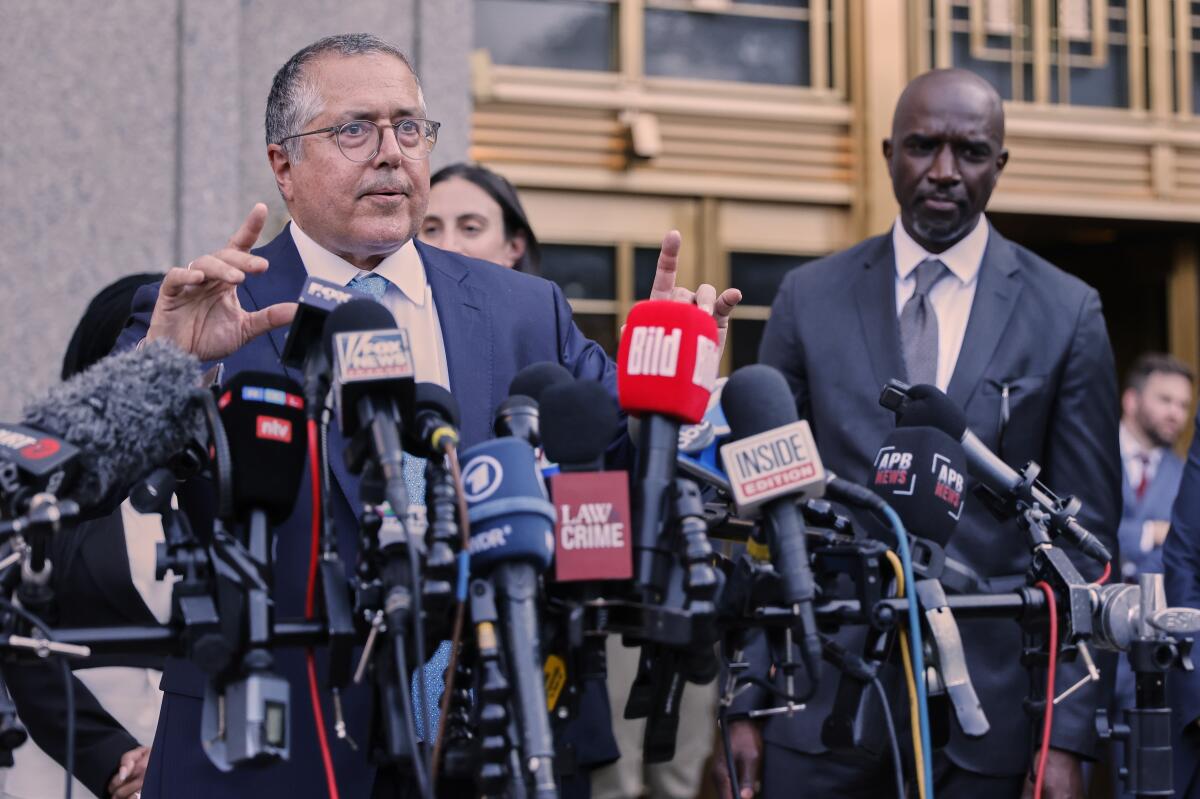This week, the music mogul Sean Diddy Combs’ federal trial came to a partial conclusion when jurors found him guilty of transportation for prostitution but exonerated him of charges that would have resulted in a life sentence in prison.
However, there is still much more to come in the spectacular judicial drama that enthralled the public and offered a window into the life of one of the most influential musicians in the country. Numerous legal claims accusing him of sexual assault and wrongdoing are still pending.
According to Dmitry Gorin, a former sex crimes prosecutor and defense lawyer, this decision does not end the civil cases, where the bar of proof is far lower. Given the government’s actual proof of extortion and domestic abuse, the criminal case might have had greater success in state court.
Furthermore, it is unknown how long Combs will serve in prison for the conviction linked to prostitution.
Combs faces up to 10 years in jail for each of the two prostitution charges due to the jury’s split judgment. Eight men and four women made up the jury, which found him not guilty of racketeering, which carries a life sentence, and sex trafficking by force, fraud, or extortion. Prosecutors stated sentence recommendations ranging from 51 to 63 months, or slightly more than five years, in an attempt to keep him behind bars.
According to Gorin, Combs’ lawyers will probably insist for probation.
At the end of the day, he claimed, the government loses since he was discovered to have paid sex workers to cross state lines.
Additionally, Judge Arun Subramanian has a great deal of discretion in determining Combs’ exact sentence. Subramanian hasn’t been forgiving of the star thus far.
Citing prior violent episodes that Combs’ lawyers admitted throughout the trial, judge decided Wednesday that Combs would be held at the Metropolitan Detention Center in Brooklyn until his sentence hearing.
Combs’ ex-girlfriend, Jane, testified that the superstar choked and dragged her during a June 2024 altercation while Combs knew he was being probed. Subramanian cited this testimony in support of his conclusion.
According to Subramanian, the defendant cannot prove that he is not a threat with unambiguous and compelling proof.
In addition to offering to relinquish his passport, make him submit to a drug test, and limit his travel to New York, Los Angeles, and Miami, Combs’ lawyers had also suggested a $1 million bond.
Combs’ lawyers argued in a letter for his release that Combs has children and an 85-year-old mother who wants her son to be her primary caregiver due to a number of health issues.
According to the sentencing standards for these prostitute offenses, Mr. Combs would ordinarily be entitled to serve any additional time imposed at a lower-security institution, so it would be unfair to keep him detained at the MDC for even one more day, his attorneys claimed.
However, Subramanian stated that the Mann Act requires incarceration for the prostitution-related offense. The judge suggested having the hearing in October, but Combs’ sentencing date has not yet been determined.
Prosecutors presented Combs and his colleagues as seductive female victims during the trial, frequently posing as love partners. Prosecutors claimed that when he had captured their attention, Combs used drugs, compulsion, threats of force, and force to induce them to have sex with male prostitutes while he periodically observed during events he called “freak-offs.”
Three women—two ex-girlfriends and a personal assistant—told jurors about the empire’s culture, which prosecutors compared to a mob-style racketeering scheme. The government accused Combs of racketeering by claiming that his business, Bad Boy Entertainment, operated as a criminal organization that intimidated and mistreated women and exploited its members to commit a wide range of crimes, such as forced labor, kidnapping, sex trafficking, bribery, arson, and obstruction of justice.
Witnesses stated on the stand that Combs used GHB, ecstasy, and ketamine to keep the women submissive and cooperative throughout the performances.
A reporter questioned President Trump about the issue in May while the trial was in progress, pointing out that he has the authority to pardon those found guilty of federal offenses.
Trump informed reporters that no one has questioned him about the celebrity’s pardon. He admitted that he hadn’t been paying much attention to the matter but said he would definitely review the facts.
Trump stated, “I know people are thinking about it.” Some people, I believe, have come very close to asking.










